Jamaica, a Caribbean jewel renowned for its reggae rhythms, breathtaking landscapes, and vibrant culture, boasts a rich and captivating history. Stay tuned to learn how Jamaican historical events weave together the threads of indigenous civilizations, colonial struggles, and the pursuit of independence.
From the arrival of the Taino people to the rise of Rastafari and the journey towards self-governance, each chapter of Jamaica’s past has shaped the nation’s identity and left an indelible mark on its present.
Join us as we embark on a fascinating exploration of Jamaica’s historical milestones, unveiling the resilient spirit, cultural diversity, and dynamic heritage that make this island nation an enchanting tapestry of history and culture.
Introduction to Jamaican History
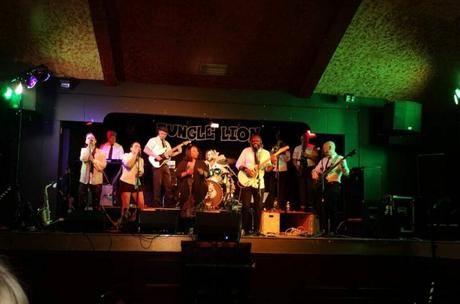
Let’s delve into the tapestry of history that unfolds the captivating tale of Jamaica, a Caribbean gem known for its rhythmic reggae music, exquisite natural beauty, and diverse cultural heritage. From indigenous societies to modern developments, each era of Jamaican history has left indelible imprints on the island’s landscape, culture, and people.
This article promises a comprehensive exploration of pivotal Jamaican historical events and milestones. It’s an exciting journey that unravels Jamaica’s transformation, leaving no epoch unexplored.
The Arrival of the Taino People
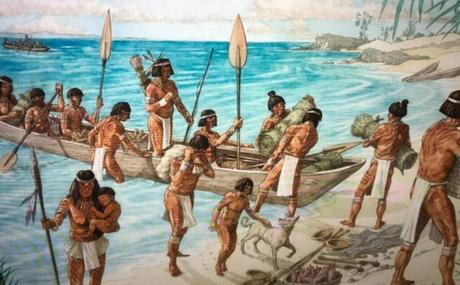
Jamaica’s first chapter begins with the arrival of the Taino people around 650 AD from South America. These indigenous people, known for their agricultural prowess, created thriving communities across the island. They had a profound impact on the island’s history, leaving behind an enriching cultural legacy.
The Taino people developed intricate societal structures and unique religious practices. Their art, customs, and language form an integral part of Jamaica’s early historical foundation, paving the way for the chapters that followed.
Spanish Colonization and British Conquest
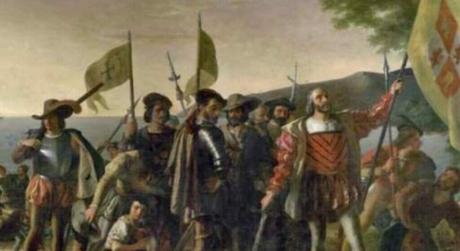
With the arrival of Christopher Columbus in 1494, the trajectory of Jamaican history changed profoundly. Claiming the island for Spain, the Spaniards used Jamaica as a strategic outpost in their burgeoning New World empire. The Spanish reign, however, was soon to be challenged.
In 1655, the British, keen on expanding their colonial foothold, conquered Jamaica. This marked a significant turning point in Jamaica’s history, setting the stage for dramatic sociopolitical shifts.
- Christopher Columbus arrived in Jamaica in 1494 and claimed the island for Spain, establishing it as a strategic outpost in the Spanish empire.
- The creation of sugar plantations in Jamaica as a result of Spanish colonialism resulted in the importation of African slaves to labor on these estates.
- The Spanish reign over Jamaica was challenged by various European powers, including the British, who sought to expand their colonial holdings.
- The British successfully invaded Jamaica in 1655, taking sovereignty of the island from the Spanish.
- The British colonization of Jamaica resulted in considerable changes to the island’s social, economic, and political landscape.
- Under British rule, Jamaica became a major center for sugar production, fueled by the labor of enslaved Africans.
- The British introduced various systems of governance, including the plantation system and the slave trade, which had a profound impact on the island’s society.
- The British colonization also brought an influx of British settlers and the establishment of English law and institutions.
- Jamaica became become a profitable colony for the British Empire throughout time, adding to its prosperity through the sale of sugar, rum, and other commodities.
- The British invasion ushered in a new period in Jamaican history, influencing the island’s future efforts for freedom and self-determination.
Slavery and the Abolitionist Movement
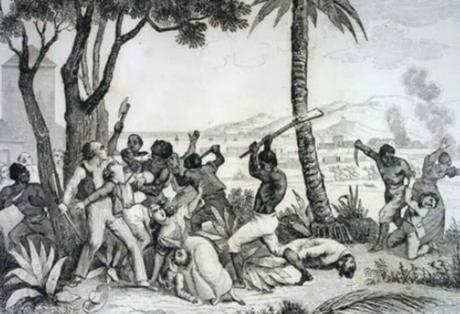
Under British rule, Jamaica was rapidly transformed into a major hub for sugar production, heavily reliant on the slave trade. The African slaves toiled under inhumane conditions on sugar plantations, their lives an echo of hardship and despair.
Despite this dark period, the abolitionist movement began to gain traction. The seeds of resistance led to the abolition of the slave trade in 1807, and ultimately emancipation in 1834 – turning points that ushered in a new era in Jamaica’s history.
- 1662: The British Parliament passed the Slave Act, which established legal frameworks for the enslavement and control of Africans in Jamaica.
- 1739: The Maroons, a community of escaped slaves, signed a peace treaty with the British, granting them semi-autonomous status in the interior regions of Jamaica.
- Late 18th century: Slave uprisings and acts of resistance, such as the Tacky’s Revolt in 1760 and the Baptist War in 1831-1832, demonstrated growing discontent and resistance among the enslaved population.
- 1807: The British Parliament prohibited the importing of enslaved Africans into Jamaica and other British colonies, thereby ending the transatlantic slave trade.
- 1831-1832: The Baptist War, led by Baptist preacher Samuel Sharpe, erupted as a large-scale rebellion against slavery. Although the insurrection was eventually put down, it drew attention to the brutal reality of slavery and fueled the abolitionist cause.
- 1833: Slavery was abolished across the British Empire, including Jamaica, on August 1, 1834, according to the Slavery Abolition Act approved by the British Parliament.
- August 1, 1838: Emancipation Day commemorated the official end of slavery in Jamaica, awarding previously enslaved people their freedom. They were, however, forced to an apprenticeship system, which curtailed their independence and exposed them to additional abuse.
- 1838-1840: The apprenticeship system was gradually phased out, and full freedom was granted to the formerly enslaved population in Jamaica.
Emancipation and Post-Slavery Era
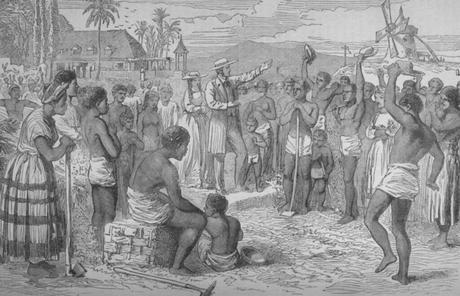
Emancipation was a watershed moment in Jamaican history. It marked the dawn of a new era where former slaves began to craft a life outside the shadow of bondage. These free communities started a new chapter of self-determination and autonomy.
In the post-slavery era, Jamaicans embraced farming, fishing, and other trades, driving social and economic changes. This period of transformation paved the way for a vibrant and resilient Jamaican society.
Rise of Rastafari and Reggae Music
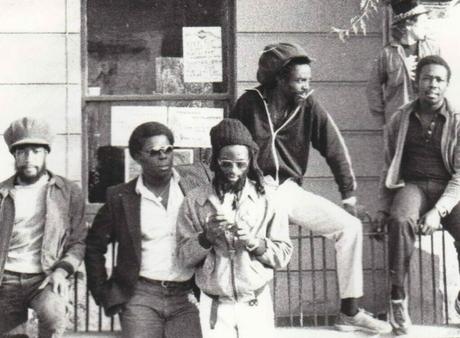
The early twentieth century saw the rise of the Rastafari movement and reggae music, two cultural phenomena that would come to characterize Jamaica in the eyes of the rest of the world. Rooted in Afrocentric philosophy, the Rastafari movement became a voice against injustice, while reggae music echoed the joys, sorrows, and resilience of the Jamaican people.
Bob Marley, the celebrated reggae icon, brought Jamaican music to global acclaim. His songs of togetherness, peace, and resistance to injustice have left an everlasting mark on Jamaican culture.
Jamaica’s Struggle for Independence
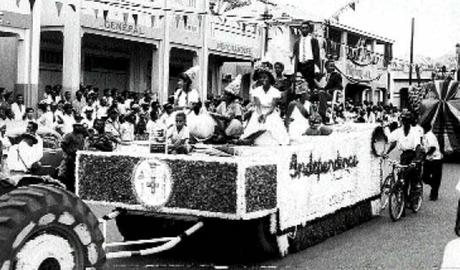
The struggle for independence was a tumultuous period, fraught with social unrest and political turbulence. Yet, the Jamaican spirit remained undeterred. The clamor for self-governance grew louder, paving the way towards independence.
In 1962, Jamaica’s determined quest bore fruit, as the island nation finally gained independence. It was a monumental event that marked a proud chapter in the annals of Jamaican history.
Political Developments and Modern Era
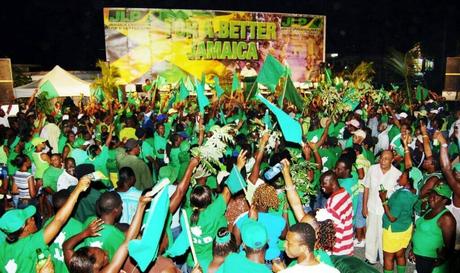
The journey post-independence was filled with its share of trials and tribulations. Jamaica experienced economic volatility and political unrest. However, the resilient Jamaican spirit was undaunted, pressing on with the challenging task of nation-building.
Despite the obstacles, Jamaica strived to foster political stability and economic progress. The nation embarked on a trajectory of modernization, leaving a distinct imprint on its historical narrative.
Jamaican History in the 21st Century

As the new century unfolded, Jamaica continued to chart its path of progress and development. While challenges persist, the nation has been making notable strides in various fields. Jamaica’s imprint on the global stage continues to grow, with contributions to culture, sports, and music.
Notable figures like Usain Bolt, the sprinting legend, and Rihanna, the global music sensation, emerged as emblematic of Jamaica’s vibrant and dynamic 21st-century history.
FAQ
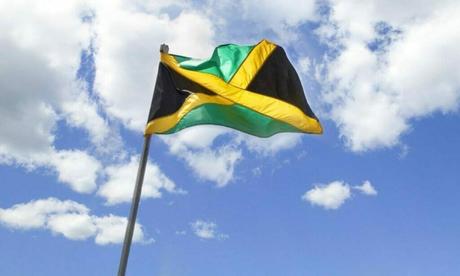
What Are Some Historical Events In Jamaica?
Jamaica has a rich history marked by significant events. One such event was Christopher Columbus’ landing in 1494, which resulted in Spanish colonialism. In 1655, the British captured the island from the Spanish, and it became a major center for sugar production using enslaved Africans. Jamaica won independence from the United Kingdom in 1962, and it is now recognized for its colorful culture and musical contributions such as reggae and dancehall.
What Is The History And Culture Of Jamaica?
Jamaica’s history is intertwined with colonialism and slavery. Jamaica became a significant transatlantic slave trading hub after being colonized by the Spanish and subsequently the British. The abolition of slavery in the nineteenth century resulted in the development of a multicultural civilization that blended African, European, and indigenous elements.
The country’s culture is celebrated for its music, dance, cuisine, and vibrant traditions, with iconic figures like Bob Marley embodying Jamaica’s cultural impact.
What Is The Simple History Of Jamaica?
Jamaica’s history can be summarized as a story of colonization, slavery, and struggle for independence. Christopher Columbus arrived in 1494, leading to Spanish colonization, but the island was later captured by the British in 1655. Enslaved Africans were brought to Jamaica to work on sugar plantations. After gaining independence from Britain in 1962, Jamaica has developed a rich cultural heritage, particularly in music, and continues to shape its own path in the modern world.
Key Takeaways: Jamaican Historical Events

The journey through Jamaica’s historical events and milestones presents a riveting tale of a nation’s resilience, vibrancy, and growth. The country’s past, marked by hardship and victory, is a monument to its people’s tenacious spirit.
Delving into Jamaica’s past gives us a profound understanding of the island nation today. The tale of Jamaica is more than a chronological sequence of events – it’s a rich saga that continues to influence and inspire, both within and beyond the island’s borders. Indeed, a deep understanding of its past is integral to appreciating the nuances of Jamaica’s present and foreseeing its promising future.

